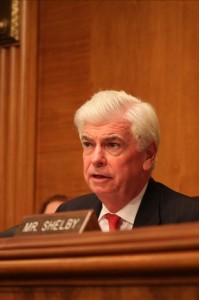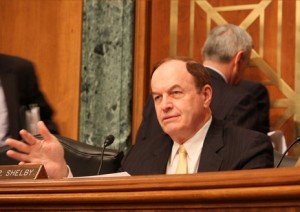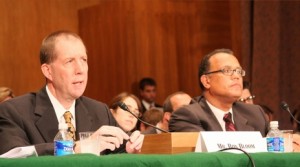
"How do we get paid back?"
In a hearing yesterday with the usual, large, degree of political posturing, the Senate Banking, Housing and Urban Affairs Committee took senior members of the Obama Administration to task for its handling of the collapse of Chrysler LLC and General Motors Corporation.
Senators from both sides of the aisle wanted to let voters know that they weren’t happy with the bailouts of Chrysler and GM, which — not coincidentally — are deeply unpopular with a clear majority of voters.
“The Auto Task Force must begin planning now for how to remove the government from the auto business,” said Senator Michael F. Bennet, a Democrat from Colorado.
This sentiment was repeated by the committee’s chairman, Connecticut Senator Christopher Dodd, also a Democrat, who is facing a strong re-election challenge because he allowed taxpayer funds to go for millions of dollars in bonuses to the financial speculators at failed AIG, which was part of the even more despised, if that’s possible, taxpayer bailouts for Wall Street plutocrats.

Shelby, to be fair, has consistently opposed taxpayer loans for domestic companies, unlike his colleagues.
Joining the “not at all happy about this parade” was Republican Richard Shelby, Alabama’s senior United States Senator, and Ranking Committee member, who has consistently opposed auto aid for domestic companies.
From the start Senator Bennet set the themes that echoed in the Dirksen hearing room all afternoon.
“I think an exit strategy from the auto industry ought to encompass three basic goals,” Bennet said: “One, seek to reform and repair the auto industry so it can compete in the long run; Two, get out as soon as is practicable; and, Three, retrieve as much of the taxpayer investment as is practicable.”
Reluctant shareholders

"The government has no desire to own equity stakes in companies any longer than necessary."
The Obama Administration, no stranger itself to the art of posturing, clearly understood what it was facing in the hearing and its representatives came fully prepared to argue its case.
“The government has no desire to own equity stakes in companies any longer than necessary,” said Ron Bloom, senior advisor to the Auto Task Force, a cabinet level organization that is co-chaired by Treasury Secretary Timothy Geithner and National Economic Council Director Lawrence Summers.
The Treasury Department “will seek to dispose of its ownership interests as soon as practicable,” Bloom said. “Our goal is to establish strong and viable companies that can quickly be profitable and contribute to economic growth and jobs without government involvement,” he said.
Not a Penny More than $80 billion from taxpayers, maybe
“There’s no plan to provide yet more taxpayer money for the bailouts of the two carmakers,” said Bloom.
The good news, Bloom claimed, is that taxpayers have a “reasonable probability” of getting their money back. So far, about $80 billion has been invested to save GM and Chrysler, as well as their lending units and industry suppliers.
That includes $50 billion for GM alone. “We strongly believe this is the last money that GM will require. I cannot make a promise about the future but I can assure you that it has been a vigorously debated and thought about question,” Bloom said.
“In a better world, the choice to intervene in the companies would not have had to be made. But amid the worst economic crisis in three-quarters of a century, the Administration’s decisions avoided a devastating liquidation and put a stop to the long practice in the auto industry of kicking hard problems down the road. While difficult for all stakeholders involved, these restructurings provide GM and Chrysler with a new lease on life and a chance to fundamentally restructure and succeed,” Bloom said.
Dealers are big campaign contributors
The hearing also took aim at the closure of 789 Chrysler dealers and the planned elimination of as many as 2000 GM retailers. Skeptical lawmakers wondered why that step is necessary. Referring to the claim that GM and Chrysler have too many retailers, Texas Republican Senator Kay Bailey Hutchison asked, “How is it a drag on the company?”
Hutchison initially introduced then withdrew a measure several weeks ago that might have blocked such closures. She backed down since she was blocking funding for the Iraq and Afghanistan wars that senior Republican leaders are so found of. Other, similar measures are still under consideration by Washington lawmakers but appear to be going nowhere, except into their re-election talking points.
Real people are involved in the auto tragedy
The administration is also trying to assist communities, most of them in the Midwest, being hit by the closure of GM and Chrysler plants. Edward Montgomery, who directs the Obama White House recovery program for auto communities and workers, warned that the process won’t be easy.
“There is no magic bullet,” he cautioned. “The challenges that the regions face did not appear overnight and will not be resolved overnight.”
Montgomery noted that the current recession is “arguably the most severe since the Great Depression and has had a profound impact upon our businesses, workers and homeowners throughout the country. Whether measured by housing prices or stock prices, the overall impact on consumer wealth has been substantial. But the consequences of the recession have not just been felt in our savings accounts and in the value of our assets; they have rippled through corporate and small business profitability and in layoffs and job loss.”
Bloom also noted the longer trend that politicians of all flavors have been ignoring for decades. While the current Great recession has had a large negative effect on the auto industry and its communities, “it is important to recognize that contraction in the American auto industry did not begin in 2008,” Bloom said.
In February 2000, the Bureau of labor Statistics said 1.3 million workers were employed in motor vehicle and parts manufacturing. “With one exception, in every year since 2000 total employment has declined.” As a result only a little more than half of that workforce remains. “What happened in this recession is that a slow but steady decline has turned into a flood, with employment dropping nearly 28% in the past 12 months,” Bloom said.
Paul Eisenstein reported on this story.

A good report, forecasting the inevitablity of more comment and controversy — informed and otherwise — to come.
Let me get this straight. Republicans would rather that GM and Chrysler go out of business than have the government help them (Detroit car companies bad – union labor). But they don’t want any local dealerships to close (local dealerships good – non-union labor, owners all Republicans). Apparently, there is some sort exception to the laws of causality that Republicans are aware of and I’m not.
Well, this is political reality in action. Newton is part of a cookie name in politics, not a scientist who explained causality.